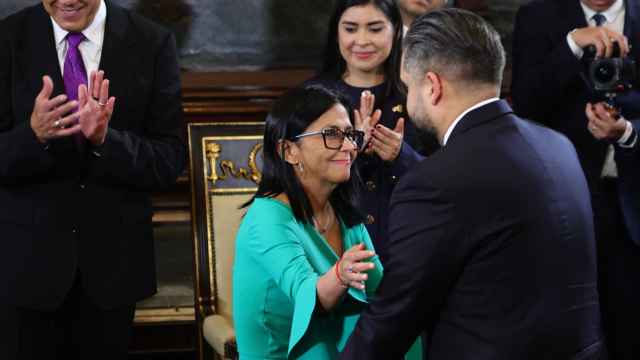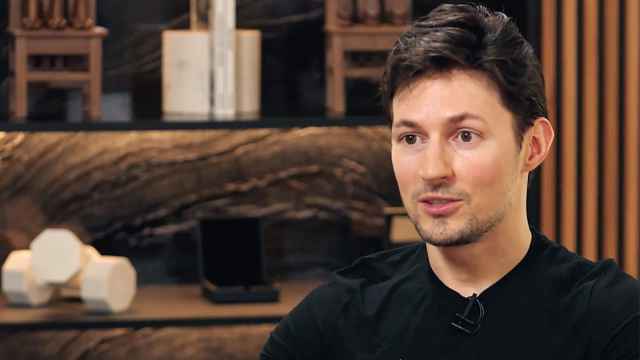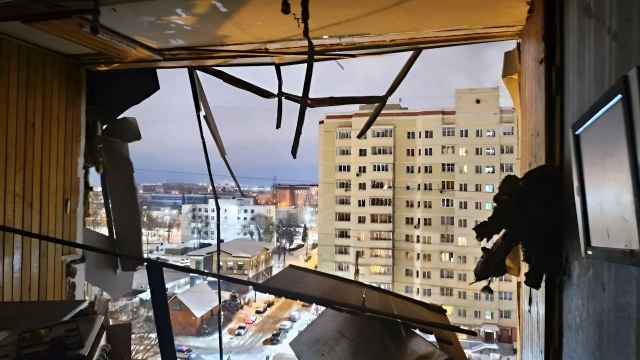A senior Russian diplomat urged Iran to take up an offer to hold talks on its nuclear program next month even as European Union foreign affairs chief Catherine Ashton reissued the invitation.
In a letter Friday to Iran's ambassador to the European Union, Ashton urged Iran's chief nuclear negotiator, Saeed Jalili, to take up the offer of talks in Vienna from Nov. 15 to 17, with the discussions to cover the nuclear program and "any other items pertinent to the discussion."
"The meeting could start with a dinner on Nov. 15, followed by two days of consultations to enable substantial discussions," reads a copy of the letter seen by Reuters. "Given the proximity of the suggested dates and the diary constraints of the parties involved, I do hope for your early and positive response."
Ashton has the backing of the six major powers involved in nuclear negotiations — the United States, Russia, France, Britain, China and Germany — to make contact with Tehran.
She last issued an invitation to talks, which would be the first high-profile contact in a year, on Oct. 14 but has yet to receive a formal reply, although Iran has intimated through its media that it welcomes the invitation.
Also Friday, Deputy Foreign Minister Sergei Ryabkov called on Tehran to agree to the negotiations chaired by Ashton.
"We urge our Iranian friends and colleagues to officially respond in a positive manner to the invitation," Ryabkov, Russia's representative to negotiations between Iran and the six powers, said in an interview with Interfax in Brussels.
A senior Iranian official said earlier in the week that Iran was ready to meet any time but said the subject must be made clear in advance, among other conditions.
Iran has long insisted on a right to peaceful nuclear technology, and that it is not seeking nuclear weapons. But its past concealment of sensitive nuclear activity and continued curbs on UN inspections has raised suspicion abroad.
Iran's first, Russian-built nuclear power plant is to go on line soon and the government says it plans to build up to 20 reactors over the next two decades.
Talks with the six powers stalled in October 2009, and governors of the International Atomic Energy Agency passed a resolution two months later rebuking Iran for having hidden a second uranium enrichment project for more than two years.
Russia has expressed increasing frustration with Iran's refusal to suspend enrichment in exchange for trade and diplomatic incentives on offer from the six powers since 2006.
Moscow, which long sought to temper Western efforts to isolate Iran, endorsed harsher UN sanctions against Tehran in June and later announced it would not fulfill a contract to sell S-300 air defense missile systems to the Islamic Republic.
A Message from The Moscow Times:
Dear readers,
We are facing unprecedented challenges. Russia's Prosecutor General's Office has designated The Moscow Times as an "undesirable" organization, criminalizing our work and putting our staff at risk of prosecution. This follows our earlier unjust labeling as a "foreign agent."
These actions are direct attempts to silence independent journalism in Russia. The authorities claim our work "discredits the decisions of the Russian leadership." We see things differently: we strive to provide accurate, unbiased reporting on Russia.
We, the journalists of The Moscow Times, refuse to be silenced. But to continue our work, we need your help.
Your support, no matter how small, makes a world of difference. If you can, please support us monthly starting from just $2. It's quick to set up, and every contribution makes a significant impact.
By supporting The Moscow Times, you're defending open, independent journalism in the face of repression. Thank you for standing with us.
Remind me later.





